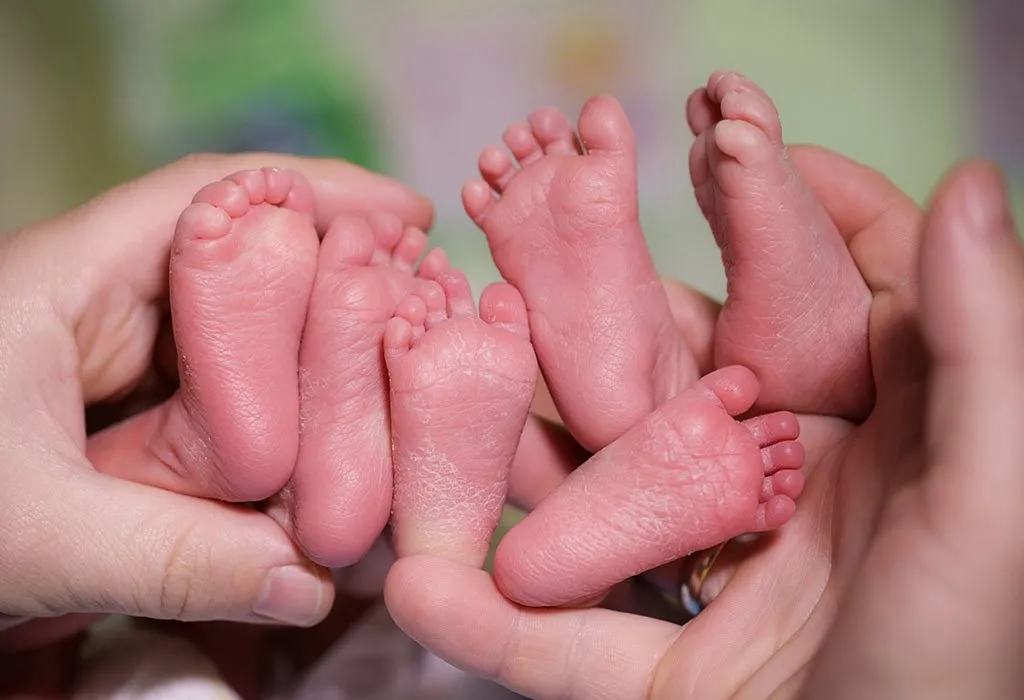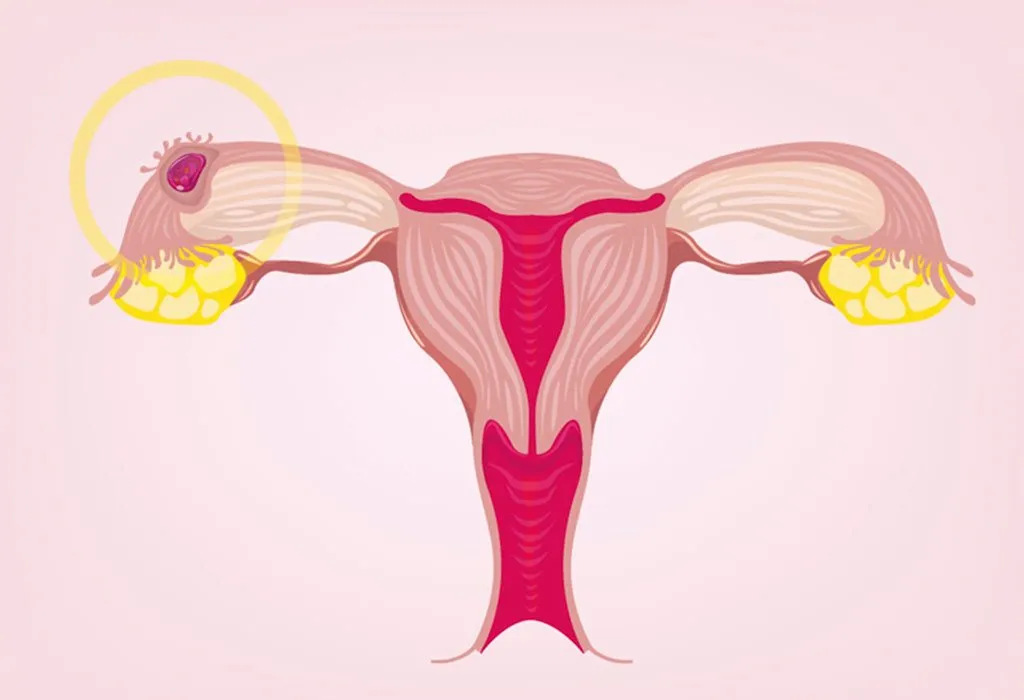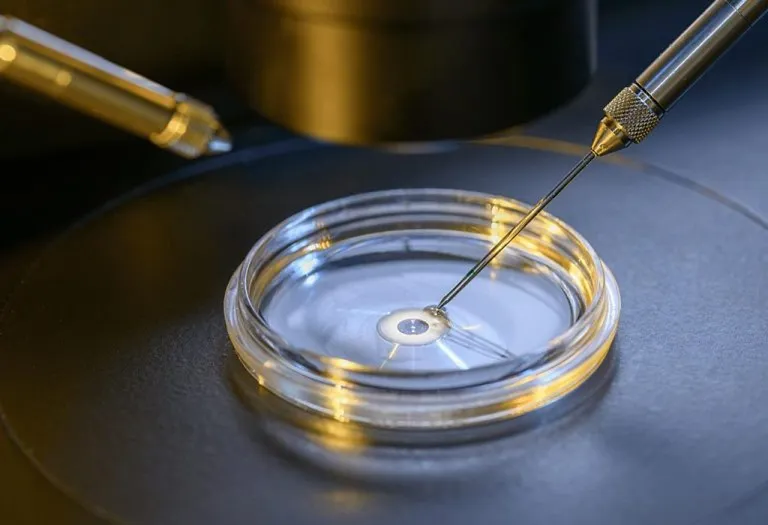Understanding the Risks and Side Effects of IVF Treatment

IVF, or in vitro fertilisation, is a very specialised procedure in which the female eggs or ova are removed from the female reproductive system. Then, the eggs are fertilised by the sperm under laboratory-controlled conditions in a culture dish. The procedure’s name is in vitro fertilisation because the fertilisation occurs in a dish, not inside a woman’s body. While the procedure has led to countless successful pregnancies, it is not without its challenges. IVF involves a series of medical interventions, including hormone therapy, egg retrieval, and embryo transfer, each of which carries potential side effects and risks. Keep reading; this article will walk you through the various IVF side effects & risks.
Side Effects and Risks Associated With IVF Treatment
There are several risks and side effects of IVF treatment. Some of these are:
1. Multiple Births
If more than one embryo is implanted in the uterine wall, IVF upsurges your probability of multiple births. This can result in the onset of preterm or early labour and birth of low-weight babies. More than three embryos should not be implanted to the uterus to avoid the chances of multiple pregnancies (1).

2. Pregnancy-Induced Hypertension (PIH)
Mothers who have undergone IVF procedure are known to have high blood pressure (generally above 130/90 mm of Hg) (2).
3. Reaction to Fertility Drugs
Many women complain about nausea, hot flushes, breast tenderness, insomnia, mood swings, and irritability. Some of the other IVF medication side effects are abdominal discomfort, vomiting or bloating. Consult your healthcare provider for aid. Painkillers like paracetamol can be taken to reduce swelling and pain (2).
4. Heavy Bleeding
Heavy uterine bleeding is also observed in mothers after attachment of IVF embryo.
5. Need of C-Section for Childbirth
Usually, C-section has to be done after the end of term so that any IVF risks to mother related to normal delivery can be avoided (2) (3).

6. Anaemia
This is the result of heavy uterine bleeding in some mothers. Blood transfusion becomes highly important to save the life of the woman in case of severe anaemia.
7. Preterm Delivery and Low Birth Weight
According to various studies, the probability of preterm delivery of babies and low birth weight babies are higher with IVF.
8. Miscarriage
Miscarriages or abortions are very frequent with IVF as the embryo is fertilised in a laboratory under controlled conditions and do not undergo the normal procedure, the uterus often declines to implant the embryo. The frequency and rate of miscarriages increase with increasing age of the mothers and use of a frozen embryo (4).
9. Ovarian Hyperstimulation Syndrome
In IVF, fertility-enhancing drugs like injectable HCG (human chorionic gonadotropins) are utilised for improving the chances of ovulation. There are some IVF injections side effects. The human chorionic gonadotropins results in swollen and painful ovaries (the ovarian hyperstimulation syndrome). The signs and symptoms of hyperstimulation syndrome are bloating, nausea, abdominal pain, discomfort and diarrhoea. The severe case of ovarian hyperstimulation syndrome is accompanied by sudden weight gain and breath shortness (1) (3) (5).
10. Complications Associated with the Egg-Retrieval Procedure
Ovums or reproductive eggs are retrieved from the ovaries with the help of aspiration needle which can lead to bleeding, infection, or damage to the bowel, urinary bladder, or blood vessels.
11. Birth Defects
There are some IVF risks to the baby. Babies born by IVF procedure are more prone to developing congenital birth defects according to some experts. However, some experts also believe that the age of the mother is the primary risk factor related to birth defects and not the IVF procedure (2).
12. Ectopic Pregnancy
It is a fatal situation in which an embryo starts developing inside the Fallopian tube rather than the uterus. Even if the IVF procedure implants the embryos to the uterine wall in the uterus, in some cases ectopic pregnancy might still occur. How Ectopic pregnancy exactly happens is not well understood, but it is more common in women who have undergone some damage in the fallopian tubes. This is a severe problem. An ectopic pregnancy can result in abdominal pain, the unusual rise in pregnancy hormones and vaginal bleeding (1) (3) (6).

13. Diarrhoea and Nausea
Some hormonal tablets incorporated inside the vagina during the IVF procedure can result in diarrhoea and nausea. The hormonal injections are very painful, hence bruising can occur. To reduce swelling and pain, you can perform cold compress on the injection site.
14. Ovarian Cancer
This is one of the most dangerous IVF side effects in mothers. Some experts believe the notion that there might be some co-relation between drugs/medicines used for stimulation of egg in IVF and development of some certain type of tumour in the ovaries. But this point is still not proved by research (3) (7).
15. Psychological/Emotional Toll
Undergoing the IVF procedure is highly emotional, stressful and physically demanding experience. The ups and downs of emotions, the occasional visits to the clinic, the high levels of hormones and all the pressure of undergoing invasive procedures and taking care of medication protocols; all of it takes a toll. Fertility treatment can push mothers to their far limits, and the process can easily cause problems in relationships, especially at a time you need emotional support to sail through. Garnering sufficient support from relatives, friends, and professionals is very essential.
16. Stress
IVF is generally an expensive procedure. It affects you physically as well as emotionally. Psychological support from spouse, counsellors and friends can reduce your apprehensions and tension because of the procedure.

17. Hot Flashes
Hormones are known as the chemical messengers of the human body. They carry signals from one part of the body to the other. Alterations in hormone levels might change how your body perceives temperature, resulting in sudden hot flashes. You might also figure that you grow winded more easily or that you are more sensitive to heat.
18. Headaches
Some mothers experience severe headaches after drug injections during IVF procedure, specifically in the time period immediately after an injection. If you have headaches related to your menstrual cycle, this might mean that you are more prone to hormonal shifts, and hence more prone to headaches induced by IVF as well.
19. Anxiety
As we already know that physical infertility can induce anxiety. The IVF procedure can also induce anxiety, as regular doctor’s appointments and injections continuously redirect your mind towards your fertility problem. You might feel anxious about issues like your inability to get pregnant or the effects of treatment (3).
20. Changes in Mood
The drugs taken during the IVF procedure stimulate your ovaries to make multiple eggs, hence upsurging the probability of you getting pregnant with each cycle. Though the multiple drugs that you intake will depend on your fertility issues, oestrogen is mostly a part of the drugs. High dosage of oestrogen may cause frequent mood swings or depression. If you undergo more than one IVF cycles, you might find that you experience less frequent mood changes with the second cycle.
FAQs
1. Are there any risks associated with frozen embryo transfers (FET)?
Frozen embryo transfer (FET) is a safe and effective procedure, but it comes with certain risks. Studies suggest a slightly higher risk of pregnancy complications such as hypertension, preeclampsia, and placenta-related issues compared to fresh transfers (8).
2. How does IVF impact partner relationships?
The physical, emotional, and financial strain of IVF can put stress on relationships. Open communication, emotional support, and counselling can help couples handle the challenges together and maintain a strong bond throughout the process.
IVF is a boon for many parents who have trouble conceiving for different fertility-related issues. It gives them a chance to realise their dream of having a child and a family. While IVF is generally safe and is highly recommended by specialists, it also comes with a few caveats that are worth considering. Ensure that you discuss and understand the side-effects and risks of in vitro fertilisation with your doctor before you undergo the procedure. It is highly imperative for you to make a wise decision and know about the risks and side-effects of IVF procedure. This can help you prevent any complications and have a successful procedure without worries.
References/Resources:
2. AMERICAN SOCIETY FOR REPRODUCTIVE MEDICINE – IN VITRO FERTILIZATION (IVF): WHAT ARE THE RISKS?
3. PubMed – Short and long-term risks to women who conceive through in vitro fertilization
4. Cleveland Clinic – Miscarriage
5. Cleveland Clinic – Ovarian Hyperstimulation Syndrome (OHSS)
6. American College of Obstetricians and Gynecologists – Ectopic Pregnancy
7. PubMed – Risk of cancer after use of fertility drugs with in-vitro fertilisation
Also Read:
IVF Success Tips
Twin Pregnancy With IVF
In Vitro Maturation
IVF Diet – Foods to Eat and Avoid
Was This Article Helpful?
Parenting is a huge responsibility, for you as a caregiver, but also for us as a parenting content platform. We understand that and take our responsibility of creating credible content seriously. FirstCry Parenting articles are written and published only after extensive research using factually sound references to deliver quality content that is accurate, validated by experts, and completely reliable. To understand how we go about creating content that is credible, read our editorial policy here.




































